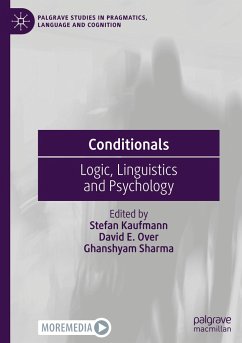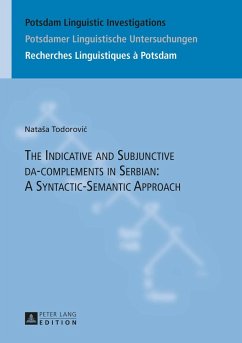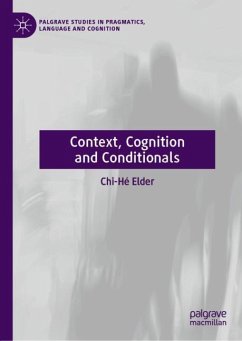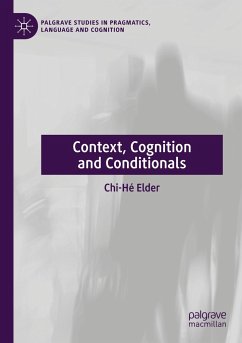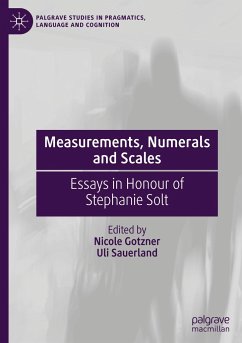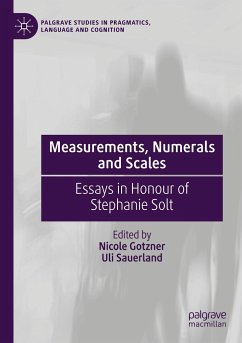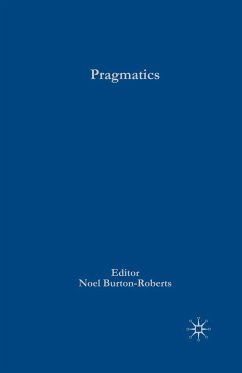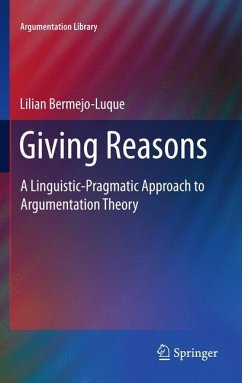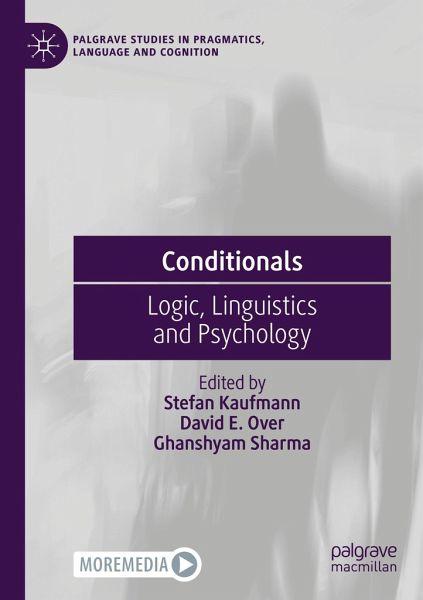
Conditionals
Logic, Linguistics and Psychology
Herausgegeben: Kaufmann, Stefan; Over, David E.; Sharma, Ghanshyam
Versandkostenfrei!
Versandfertig in 6-10 Tagen
113,99 €
inkl. MwSt.

PAYBACK Punkte
57 °P sammeln!
This edited book examines conditionals from a number of interdisciplinary perspectives, drawing on research from fields as diverse as linguistics, psychology, philosophy and logic. Across 13 chapters, the authors not only investigate and examine various commonly-held perceptions about conditionals, but they also challenge many of the assumptions underpinning current conditionals scholarship, setting an agenda for future research. Based in part on the papers presented at a unique international summer school - Conditionals in Paris - this volume represents the cutting edge in the study of condit...
This edited book examines conditionals from a number of interdisciplinary perspectives, drawing on research from fields as diverse as linguistics, psychology, philosophy and logic. Across 13 chapters, the authors not only investigate and examine various commonly-held perceptions about conditionals, but they also challenge many of the assumptions underpinning current conditionals scholarship, setting an agenda for future research. Based in part on the papers presented at a unique international summer school - Conditionals in Paris - this volume represents the cutting edge in the study of conditionals, and it will be of interest to scholars in fields including linguistics and psychology, semiotics, philosophy and logic, and artificial intelligence.



